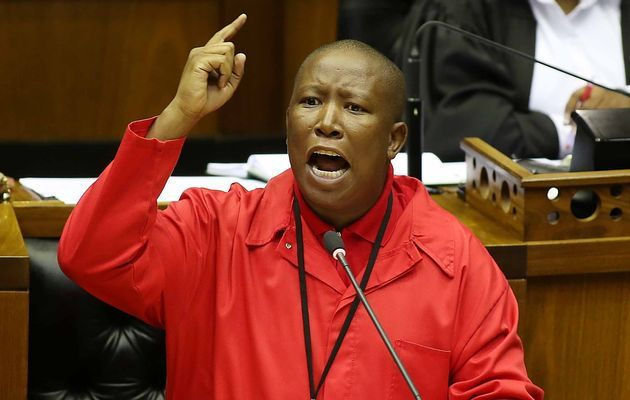South African Court Convicts Malema in 2018 Gun Case
- Admin
- Oct 2, 2025
- 2 min read
Updated: Oct 7, 2025

In South African politics, a lively yet unpredictable arena where heated rhetoric often faces legal scrutiny, Julius Malema, a charismatic and controversial opposition leader, has experienced a significant setback. On October 1, 2025, the East London Magistrate's Court found the 43-year-old leader of the Economic Freedom Fighters (EFF) guilty on multiple firearm-related charges from a 2018 incident. This verdict emphasizes the limits of free speech and prompts questions about accountability for prominent figures in a country still navigating its post-apartheid identity.
The case involves a viral video from the EFF's fifth anniversary rally in the Eastern Cape, where Malema was seen firing what looked like a semi-automatic rifle into the air in front of thousands of people. Prosecutors charged him with unlawful possession of a firearm and ammunition, discharging a firearm in a built-up area, and reckless endangerment under South Africa's strict Firearms Control Act. Malema argued that the weapon was just a harmless toy gun meant to energize supporters. However, Magistrate Twanet Olivier rejected this defense after three days of deliberation, citing clear video evidence. His former bodyguard, Adriaan Snyman, accused of supplying the rifle, was acquitted, leading Malema to claim racial bias in the ruling.
Brought forward by the Afrikaner rights group AfriForum, a frequent adversary of Malema, the case highlights ongoing tensions between the EFF's radical agenda and conservative factions. Malema, a former ANC youth leader expelled for divisiveness, has built the EFF into South Africa's fourth-largest party, advocating for land expropriation without compensation, nationalization of mines, and economic justice for the Black majority. His unapologetic style, including songs like "Kill the Boer" and support for Hamas, has attracted international criticism, including from U.S. President Donald Trump, who referenced Malema in claims of "white genocide" in South Africa, and a UK entry ban citing threats to public order.
Malema's response was typically defiant. Addressing supporters outside the court, he pledged to appeal all the way to the Constitutional Court, dismissing the verdict as a "witch hunt" orchestrated by political opponents. "Prison or death is a badge of honor in the revolution," he stated, characterizing the conviction as persecution rather than justice. The EFF echoed this, calling it an attempt to silence their leader's voice on behalf of the marginalized.
The political stakes are high. Sentencing is scheduled for January 23, 2026, with potential penalties of up to 15 years in prison. Under South African law, a sentence exceeding 12 months without an acceptable option would disqualify Malema from parliament, where he has served for over a decade. This would be a blow to the EFF's influence amid shifting coalitions following the 2024 elections. Rivals like the Democratic Alliance seized the moment, linking the ruling to the EFF's "culture of violence and criminality." AfriForum praised it as a victory for the rule of law.
This conviction, Malema's second in recent months after a hate speech ruling, could alter his path. However, for a man who has risen from poverty to political prominence, it might strengthen his story of resistance. As appeals approach, South Africans watch closely: Will this temper the firebrand, or cause more division in a nation hungry for change?









Comments